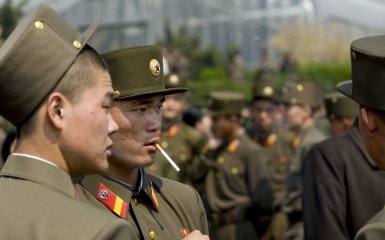The New York Times has learned from its insiders in Russia and Ukraine that North Korean occupiers fighting on Russia's side against Ukraine have been withdrawn from the front line in the Kursk region after suffering heavy losses.
Points of attention
- Disorganization and lack of cooperation with Russian units led to large-scale losses among North Korean soldiers.
- North Korean troops could still return to the battlefield.
The North Korean soldiers did not last long.
According to American journalists, the North Korean invaders, who were sent by Pyongyang to support Russian forces, were not seen at the front for about two weeks.
What is important to understand is that in November 2024, 11,000 soldiers from the DPRK arrived in the aggressor country of Russia.
However, recently, the Commander-in-Chief of the Armed Forces of Ukraine, Oleksandr Syrsky, officially confirmed that their number had halved in just 3 months.
Anonymous sources told reporters that disorganization in the ranks of North Korean soldiers and lack of cohesion with Russian units were the key reasons for such large-scale losses.
From the moment they arrived on the battlefield, North Korean soldiers were left to their own devices, advancing with little armor and rarely stopping to regroup or retreat.
North Korea has lost its best military personnel
What is important to understand is that many of the DPRK soldiers involved in the war against Ukraine on the side of the Russian Federation are among the best-trained fighters in North Korea's special operations forces.
However, this did not prevent the Russian army command from using them as infantrymen.
They (DPRK soldiers — ed.) were thrown in waves across fields strewn with mines, to be mowed down by heavy Ukrainian fire.
According to insiders, the decision to withdraw North Korean troops from the front line may not be final.
Anonymous sources suggest that the occupiers from the DPRK may return after additional training or after the Russians come up with new ways to deploy them to avoid such heavy losses.




